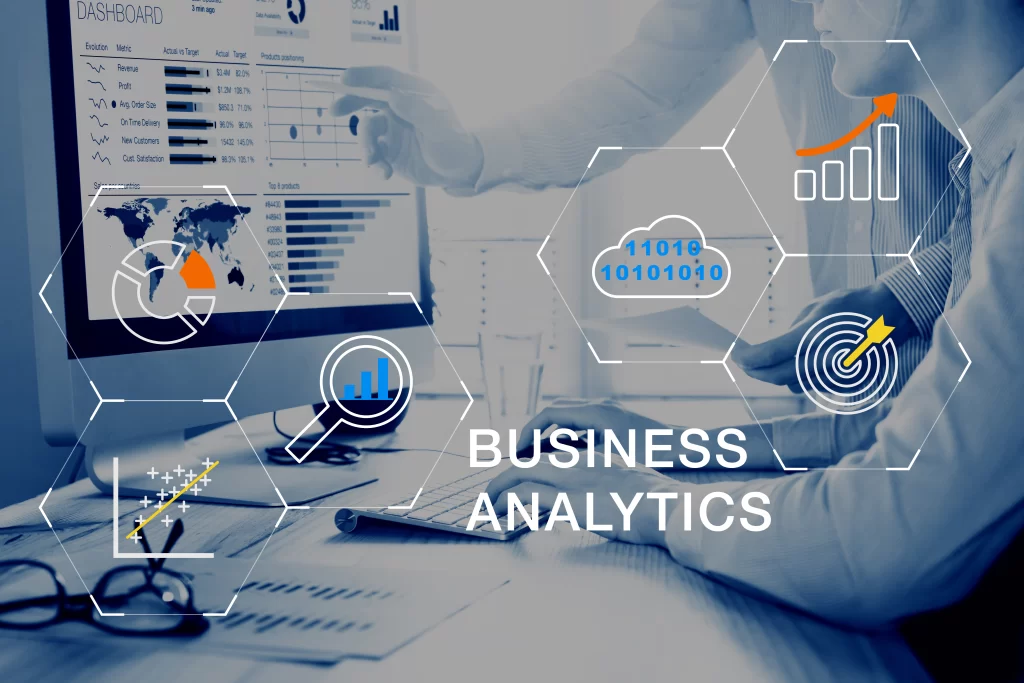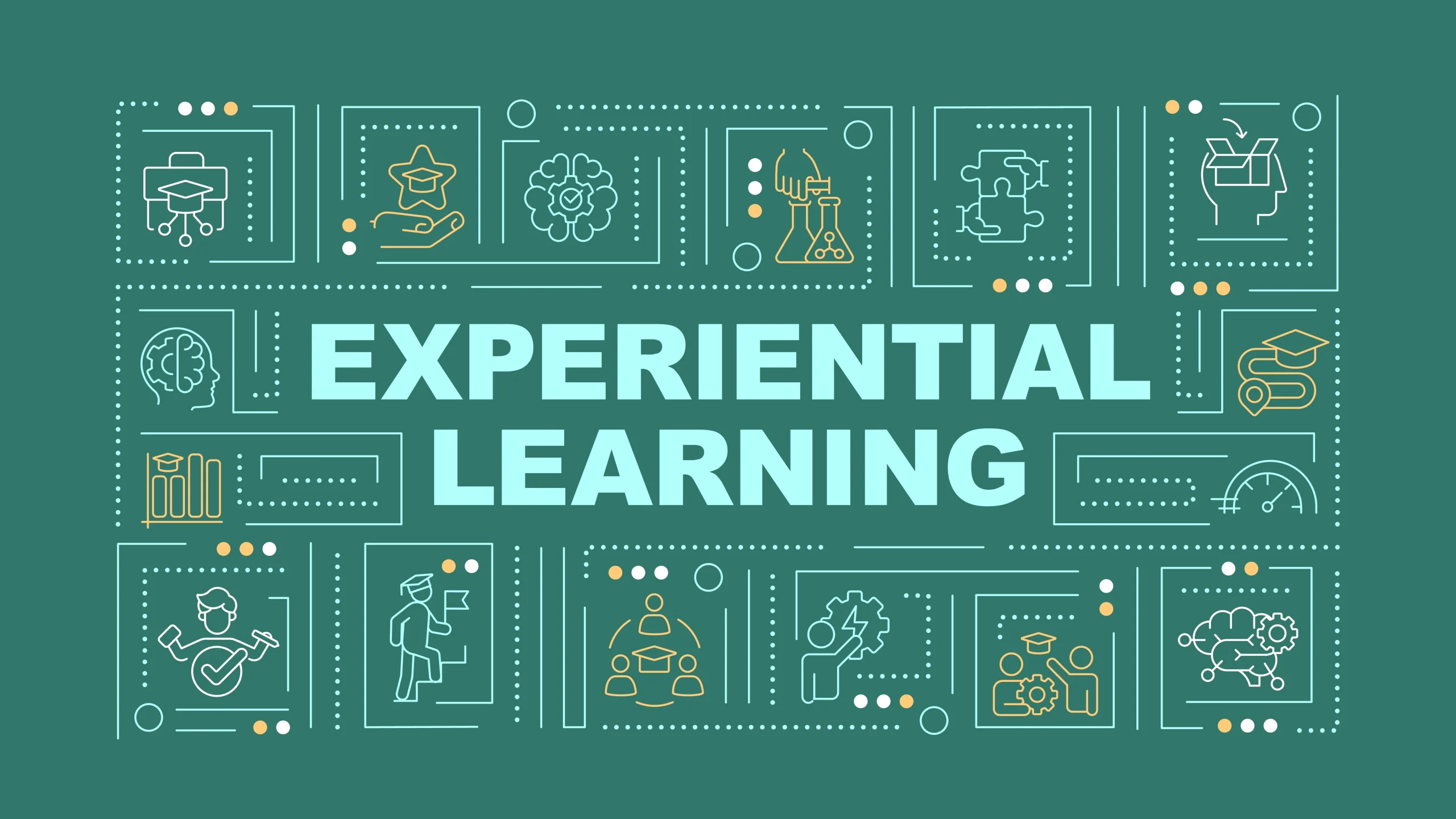In the grand theatre of contemporary commerce and economy, intuitions are being upstaged by deep insight. The gut feelings of veteran professionals, while still priceless, are now robustly augmented by a new currency: the data. We have transitioned from the Industrial Age through the Information Age and into the Decision Age, where the successful leaders are those who can aptly harness, analyse, and act upon the large swatches of data they generate. This transformation is enabled by data science, a multidisciplinary field that employs scientific methods, processes, algorithms, and systems to extract appropriate knowledge and insights from structured and unstructured data.
The ramifications of data science in business success is no longer a speculative future; it is the operational present. From SMEs to big-ticket conglomerates, from old archaic businesses to the avant garde start-ups, all are leveraging data-driven strategies to gain an insight into their customers, optimise their operations, and outmanoeuvre their competition. Let us dig into the extraordinary ways data science is rearranging the landscape of contemporary business, turning raw data into the most invaluable strategic asset.
There is no denial that the digital era has transformed data from a simple byproduct of business operations into the key strategic asset. Today, data science in business success is no longer one of the weighted-in ponderable but the most business-critical, driving innovation, enabling decision-making, and resulting in a formidable data science competitive advantage. This domain, which reifies statistics, computer science, and business acumen, enables organizations to gain real insights from humongous datasets. A forward-thinking Business School in Spain such as C3S Business School in Barcelona recognizes this tectonic shift, embedding business intelligence and analytics into its all curricula to shape the next generation of leaders. The unparalleled ability to harness data for strategic outcomes is now the impresa or ensign of a truly triumphant business.
Data-Driven Decision Making – Enabling leaders to make strategic, evidence-based choices.
In the days of the yore the business head honchos relied primarily on intuition. Not all went on their way. In a space or business and economy where every decision can have far-reaching consequences, a data-driven business strategy offers the much-needed foundation for making strategic, evidence-based choices. Data science warrants the business leaders with real-time insights into market conditions, consumer behavior, and operational performance. This permits them to go beyond reactive measures and into proactive, well-informed decision-making. “Leaders who are cognizant of the data are no longer hazarding a guess; they are leading with absolute certainty,” states Dr. Aida Mehrad, head of academics at C3S Business School. This is the nub of the philosophy behind our approach to teaching data science in business success. By training learners in business intelligence and analytics, we empower them to be the strategic minds of tomorrow, truly capable of interpreting complex data to drive tangible results.
For many years, critical business decisions were often the prerogative of the highest-paid person’s opinion (HiPPO). Now no more the corporate decision-making culture where the highest-ranking employee’s view is prioritized over data-driven approaches or other team members’ ideas as the pendulum has swung, the paradigm is shifting decisively. Data-driven decision making (DDDM) enables business leaders to replace intuition with evidence, warranting that strategic choices are grounded in reality rather than rhetoric. All these profound insights are reflected on the modules of data science in C3S Business School’s curriculum.
This unique approach entails collecting data, extracting insights, and employing those useful insights to suggest a course of action. It’s about posing the question, “What does the data tell us?” before committing resources. A retailer might analyse footfall and sales data to arrive on the decision such as which product to place on an end-cap display. A logistics business might employ GPS and traffic data to reroute deliveries in real-time. The common thread among all these modus operandi is the transition from reactive to proactive, from subjective to objective.
Professor (Dr) Sarat C Das, Director (Research) at C3S Business School, stresses upon this shift: “The core of modern strategic leadership is the uncompromised ability to interrogate data. We are no longer goading our students to just scan the balance sheets; we are urging them to grasp data streams. There is no denial of the fact that the quality of a decision is directly proportional to the quality of the data informing it. This is the foundation of a true data-driven business strategy.”
This tenet is core to the curriculum at institutions like C3S Business School, where future leaders are trained to wield data as their primary tool for governance and growth.
Customer Insights & Personalization – Using analytics to understand behavior and tailor offerings.
At the core of any successful business is a deep insight into its customers. Data science proffers the tools to go beyond demographic data to bona fide behavioral insights. By analyzing end-user interactions, buying history, online and offline engagement, organizations can shape highly personalized products and services. This level of personalization not only enhances customer satisfaction but also creates brand loyalty and drives repeat business. A neatly-executed data-driven business strategy is essentially a customer-centric proposition. According to Professor Esther Comin of C3S Business School, “Data enables us to go from one-size-fits-all marketing to a truly personalized experience, enabling every customer feel understood and valued.” This unparalleled ability to discerningly apprehend and foretell customer needs offers a significant data science competitive advantage.
Perhaps the most conspicuous impact of data science – as as plain as a pikestaff — is in the domain of marketing and customer experience. The era of mass, generic advertising is dwindling, substituted by hyper-personalized interactions that make each customer feel truly understood.
Data science empowers this by synthesising data from a multitude of touchpoints: website clicks, purchase history, social media interactions, customer service logs, and more. Advanced analytics and machine learning models can compartment audiences with unbelievable granularity, foretell individual customer lifetime value (CLV), and figure out the next best action for each person.
Consider Netflix’s suggested engine or Amazon’s “customers who bought this also bought” novelty feature. These are not certainly easy algorithms; they are complex data science configured systems that drive a large portion of these organisations’ revenue. This unique insight into a customer behaviour is an essential part of data science in roaring business success.
Dr. Maria Fernanda Dugarte, Dean and Director of Institutional Affairs at C3S Business School in Barcelona, Spain, underscores, “Personalization is the new norm of customer service. It is no longer an eye-candy luxury. Through business intelligence and analytics, we can progress beyond demographics and gain an insight into psychographics—the ‘why’ behind the ‘buy’. This paves the path for meaningful engagement that fosters loyalty and drives sustainable growth.”
Market Trend Prediction – Forecasting demand, competition, and emerging opportunities.
In a rapidly transforming market, the ability to foretell future trends is invaluable. Data science offers robust powerful forecasting models that permit organizations to anticipate shifts in demand, identify new market opportunities, and stay streets ahead of the competition. By analyzing historical data, macroeconomic indicators, and even social media sentiment, an organization can shape a more resilient and forward-looking strategy. This is an essential part of data science in business success. A graduate from a top business school in Spain with a robust background in business intelligence and analytics can leverage these skills to forecast future growth areas, optimize product launches, and mitigate potential risks. This foresight is a key source of a data science competitive advantage.
In a volatile, uncertain, complex, and ambiguous (VUCA) world, the skill and knowledge to foretell change is the sign of a winner. Data science provides that crystal ball. By collating and analysing historical data, social media sentiment, economic indicators, and even weather patterns, predictive models can predict demand, identify emerging market opportunities, and signal shifts in competitive dynamics.
Fashion brands employ it to foretell next season’s colours and styles. Financial institutions deploy it to forecast market movements. Supply chain managers leverage on this to anticipate disruptions. This predictive capability permits organizations to be agile, allocating resources to where they will be most demanded and pivoting before a trend becomes a tidal wave that washes them away.
Dr. Rajat Baisya, a global management consultant and former dean of IIT Delhi, states, “Strategic foresight is definitely built on data, not dogma. The organizations that will lead in the future are those investing large sum in predictive analytics today. They are founding systems that don’t just report on the past but actively simulate the future, providing a robust data science competitive advantage.

Operational Efficiency – Streamlining workflows and reducing costs with predictive models.
While customer-facing applications get much of the pre-eminence and supremacy, some of the most critical ROI from data science emanates from internal operational improvements. Predictive maintenance, for example, employs sensor data from machinery to predict failures before they come into being, reducing costly downtime. Algorithms optimize delivery routes for fleets, saving millions in overburdening fuel costs. In warehouses, data science supplants the most efficient paths for pickers and the optimal layout for inventory.
This relentless laser-focus on efficiency, powered by data, positively impacts the bottom line. It minimizes waste, shortens cycle times, and allows human workers to focus on creative and complex problem-solving tasks rather than repetitive, inefficient processes.
Data science must not be type casted as strategic planning; it’s about optimizing day-to-day operations. Predictive models certainly can streamline workflows, automate repetitive tasks, and identify inefficiencies that traditional methods might miss. From optimizing supply chain logistics to managing energy consumption, data-driven insights can pave the path to cost reductions and increased productivity. “Every business process, no matter how big or small, can be made more efficient with the right data,” says Pretam Pandey, chief of operations at C3S Business School. This unyielding focus on efficiency is a central part of a robust data-driven business strategy. The integration of data science in business success is about doing more with less, enabling organizations to deploy resources more effectively and emphasize on high-impact activities.
Pretam Pandey, further dwells on its internal value: “Even in education, operational efficiency is key. We employ data to optimise everything from classroom scheduling and resource allocation to student support services. Analysing engagement data enables us identify learners who might need extra assistance early on, allowing for proactive intervention. This operational mindset is critical for any institution of today.”
Product & Service Innovation – Identifying gaps and creating data-backed solutions.
Data science has become the engine of growth and innovation. By analyzing customer feedback, market data, and user behavior, organizations can identify unmet needs and engender products and services that are truly market-fit. This is not about hazarding a guess what customers need but about using data to find and validate new ideas of understanding this ‘’need’’. The success of a new product is no longer left to a mere chance; it is consequence of a meticulous, data-backed development process. This is why a top business school in Spain attaches so much importance to data science in C3S Business School. A graduate who apprehends how to employ business intelligence and analytics to drive innovation is a priceless asset. This forward-thinking approach to product development is the key of a sustainable data science competitive advantage.
Innovation has often been a game of chance. Organizations would invest millions in Research & Development (R&D) hoping to chance upon success. Data science de-risks innovation. By analysing customer feedback, search trends, product usage data, and even competitor reviews, businesses can identify unmet needs and gaps in the market with laser-sharp precision. This is something which has been realized in all deliverables of data science in C3S Business School as a core module.
This paves the way for the creation of data-backed solutions that have a much higher probability of market acceptance. A tech organization might employ A/B testing to refine a new feature before a full-scale launch. A car manufacturer might analyse social media conversations to gain insight into desired features for a new model.
Professor Esther Comin of C3S Business School opines, “Innovation is not a thunderbolt and lightning strike of inspiration; it is a disciplined process of discovery. Data offers the map for that discovery. It guides the organizations where the uncharted territories of customer need are located, allowing them to innovate with purpose and confidence.”
Risk Management – Detecting potential threats and mitigating business risks proactively.
In a fluid global economy, managing risk is the key. Data science offers avant garde tools for detecting potential threats, from financial fraud and cybersecurity breaches to supply chain disruptions and market volatility. Predictive risk models permit organizations to zero in on the red flags and take proactive measures to mitigate potential damage. This is a critical application of data science in business success. Professor David M J Graves, who specializes in private and public corporate governance issues, emphasizes this moot point: “In today’s environment, an organization that does not use data to manage risk is taking a huge, and often unnecessary, gamble.” A robust data-driven business strategy is, by its very innate nature, a risk-averse one, protecting the company’s assets and reputation. A robust education from a business school in Spain will cover these risk management principles.
Business is inherently fraught with risky. However, data science transforms risk management from a reactive, defensive function into a proactive, strategic panacea. In finance, machine learning models are employed to zero in on the fraudulent transactions in real-time, analysing patterns that would be invisible to a human auditor. In cybersecurity, algorithms track and monitor network traffic to identify and neutralise threats before they can create havoc.
Beyond IT and finance, organizations employ data to assess credit risk, manage supply chain vulnerabilities, and ensure regulatory compliance. By modelling various risk scenarios, organizations can develop strong mitigation strategies, ensuring resilience in the face of potential dangers.
Prof David M J Graves, who specialises in financial crime and governance, underscores this: “The sophistication of financial fraud demands an equally sophisticated response. Data science and AI are our most potent tools in this combat, allowing us to go from investigating crimes after the fact to preventing them from occurring in the first place. This protective prowess is a silent but key driver of value.”
Performance Tracking – Measuring KPIs and optimizing business processes continuously.
Data science offers the ability to correctly measure and track Key Performance Indicators (KPIs) in real-time. This continuous feedback loop permits organizations to monitor performance, zero in on areas for improvement, and enable agile adjustments to their strategy. By employing dynamic dashboards and advanced analytics, business executives can gain a clear, visual understanding of their business health. This laser-focus on measurement is key to data science in business success. “What you can measure, you can manage,” says Dr Dababrata Chowdhury, a senior faculty at the University of Canterbury Christchurch. This simple but undeniable truth is at the core of effective business intelligence and analytics. Continuous performance tracking enables a data-driven business strategy that is always on the right track, privileging it to be a key data science competitive advantage.
Key Performance Indicators (KPIs) are not something novelty. What is new is the granularity, frequency, and context with which the organizations can now keep a tab and track them. Modern business intelligence and analytics platforms offer real-time dashboards that track everything from website conversion rates and social media engagement to factory output quality and employee productivity.
This permits for a culture of continuous, data-informed optimization. Instead of waiting for a quarterly report, the business executives can understand the impact of a new policy or campaign within hours and adjust their strategies accordingly. This engenders a feedback loop where the organization is constantly learning and improving, becoming more intelligent with every cycle.
Dr. Shaik Akbar Basha, director of London College of Business, asserts, “Performance management is now a live conversation with the business on real time. Data dashboards are the language of that conversation. They bring in transparency, accountability, and agility that was not imaginable yesterday.”

Competitive Advantage – Using data science to stay ahead in a fast-changing market.
This is common sense that all IT applications converge into the overarching benefit: a sustainable competitive advantage. In a planet where products and services can be instantly replicated, a deeply ingrained data-driven culture is much difficult to copy. An organization that understands its customers better, operates more efficiently, innovates more quickly, and manages risk more proactively will inevitably surpass its rivals.
This data science competitive advantage builds a virtuous cycle. More roaring success engenders more data, which progresses to better models and sharper insights, fuelling further thumping success. It is the today’s equivalent of a moat protecting a castle.
Hiren Raval, Chief Executive Officer of C3S Business School based in Barcelona, Spain, explains this vision: “C3S Business School’s mission is to shape the leaders of tomorrow. We truly believe that a command over data-centric thinking is the single biggest differentiator for future success. The integration of data science in business success is not an elective; it is the fulcrum of C3S pedagogy. We are not just a Business School in Spain; we are a nerve-center for building this new generation of data-fluent leaders, aspiring to be recognised as the top business school in Spain for this very reason.”
This sentiment is echoed by global academics. Prof David Weir, Professor of Intercultural Management at York Business School, says, “The intercultural dimensions of global business are replete with data. Understanding nuanced differences in consumer behaviour across geographies through analytics offers a critical layer of competitive insight that purely domestic competitors found wanting.”
The Academic Vanguard: Cultivating Data Fluency
The stipulation for data-savvy professionals has kick-started an educational revolution. Top institutions such as C3S Business School are weaving data science principles throughout their curricula, admitting to the fact that it is a fundamental literacy for the 21st-century executive.
Dr Aida Mehrad, head of academics at C3S Business School in Barcelona, Spain, affirms, “We are going beyond siloed courses on statistics. We embed data analysis into marketing, finance, HR, and strategy modules. A marketer requires to know the cohort analysis, an HR manager must know attrition prediction models. This holistic integration is what shapes a contemporary business education.”
This sentiment resonates with scholars across the academic world. Prof Marc Sanso, head of academics of Aspire Business School in Spain, affirms, “The question we pose in every program is, ‘How are we enabling our learners with the analytical tools to solve tomorrow’s problems?’ This is the new benchmark for measuring the educational quality.”
Professor Mani Tahriri of C3S Business School further dwells on the pedagogical shift: “It’s all about critical thinking. We employ data science not as an end in itself, but as a means to test hypotheses, challenge assumptions, and validate theories. This scientific gambit to business problem-solving is what we imbibe in our students.”
Specialised research centres are also instrumental. Dr P. R. Datta, executive chair of Centre for Business & Economic Research (CBER) based in London, points out, “The bridge between academic research and industry practice is founded with data. Our work offers the evidence base for effective policy and strategy, turning theoretical models into practical tools for business growth.”
Conclusion: The Data-Driven Future is Now
The influence of data science on business is overpoweringly profound, all-pervasive and all-encompassing. It is the magic lens that brings the blurry world of market forces into sharp focus. It is the formidable engine that drives efficiency, innovation, and customer centricity. From empowering a data-driven business strategy to offering an unassailable data science competitive advantage, its role is the key facilitator.
The organizations that will flourish are those that embrace this reality, investing not only in technology but also in shaping the talent as the latter learns to adapt. They will be the ones who perceptively gain an insight into data science in business success, acknowledging the latter as the differentiator between leading the market and following the pack. They will shape leaders who are conversant with the language of data, capable of posing the right questions and interpreting the convoluted answers.
As Professor Xavier Puertas at C3S Business School rightly sums up, “Data is the new fertile soil in which business grows. Our task as faculty is to offer the seeds of knowledge and the tools of analysis to enable students cultivate success. The future belongs to those who can farm this resource circumspectly, prudently, and sagaciously.”





